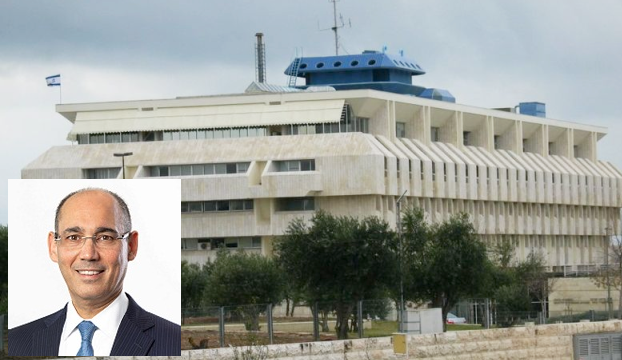On the first day of the new year, the Bank of Israel (BOI) announced a cut in the interest rate. The Monetary Committee of the BOI reduced the interest rate by 0.25% to 4.5%.
The BOI’s Monetary Committee said that in light of the ongoing war in Gaza, its policy is focusing on “stabilizing the markets” and “reducing uncertainty, alongside price stability and supporting economic activity.”
The interest rate path, it said, will be determined in accordance with the continued convergence of inflation to its target, continued stability in the financial markets, economic activity, and fiscal policy.
Will you offer us a hand? Every gift, regardless of size, fuels our future.
Your critical contribution enables us to maintain our independence from shareholders or wealthy owners, allowing us to keep up reporting without bias. It means we can continue to make Jewish Business News available to everyone.
You can support us for as little as $1 via PayPal at office@jewishbusinessnews.com.
Thank you.
The war is having significant economic consequences, both on real economic activity and on the financial markets. There is a great amount of uncertainty with regard to the expected severity and duration of the war, which is in turn affecting the extent of the impact on activity, said the Bank.
The pace of inflation continues to decline, it reported, and an analysis of the inflation dynamic, measured both quarterly and semiannually, also shows that the pace of inflation is moderating.
The BOI said that in the financial markets, there has been a sharp recovery following the declines at the beginning of the war. Since the previous interest rate decision, the shekel strengthened by 2.7 percent against the US dollar, by 1.7 percent against the euro, and by 2 percent in terms of the nominal effective exchange rate.
However, an interest rate cut will obviously cause a drop in the Shekel’s value, unless other countries like the US make similar cuts.
The Bank of Israel Research Department Said that GDP in Israel will grow by 2 percent in each of 2023 and 2024, and by 5 percent in 2025. The 2% figure for this year and the next is lower than what was forecast before the war and lower than what is considered “quality” growth.
Given the war, the forecast features an especially high level of uncertainty, including with regard to decisions that the government will need to make regarding how the budget will deal with the defense and civilian needs arising from the war.
Indicators of economic activity and the state of employment point to a gradual recovery following the sharp decline that took place with the outbreak of the war, but there is a lot of variance between industries.
Commenting on the rate cut, Bank of Israel Governor Amir Yaron said, “Israel’s economy has strong foundations, and the economic starting point with which we entered the war was positive.”
“The policies that will be adopted to deal with the numerous difficulties will have a decisive impact on the economy’s ability to return to rapid growth,” he added.
Yaron also recommended that Israel’s government adopt the budget processes required to deal with the costs of the war and with the increased defense budget in the coming years in order to return the economy as rapidly as possible to a path of sustainable growth and not to deteriorate to lost years.
“The principles for that are clear,” he said, “focusing on the expenses of the war and expenditures that are growth drivers, while cutting nonessential expenditures, certainly those that do not support growth.”




